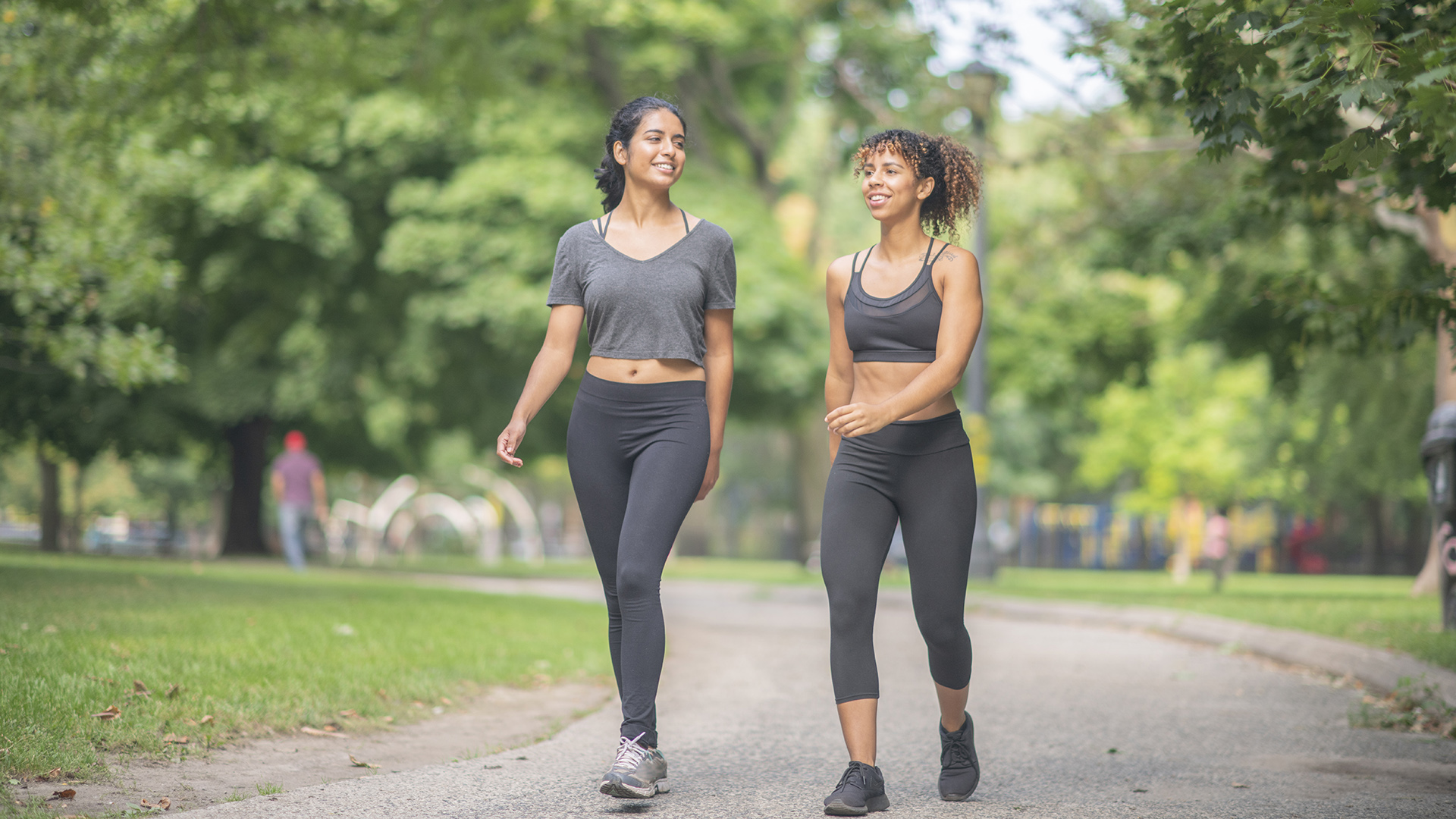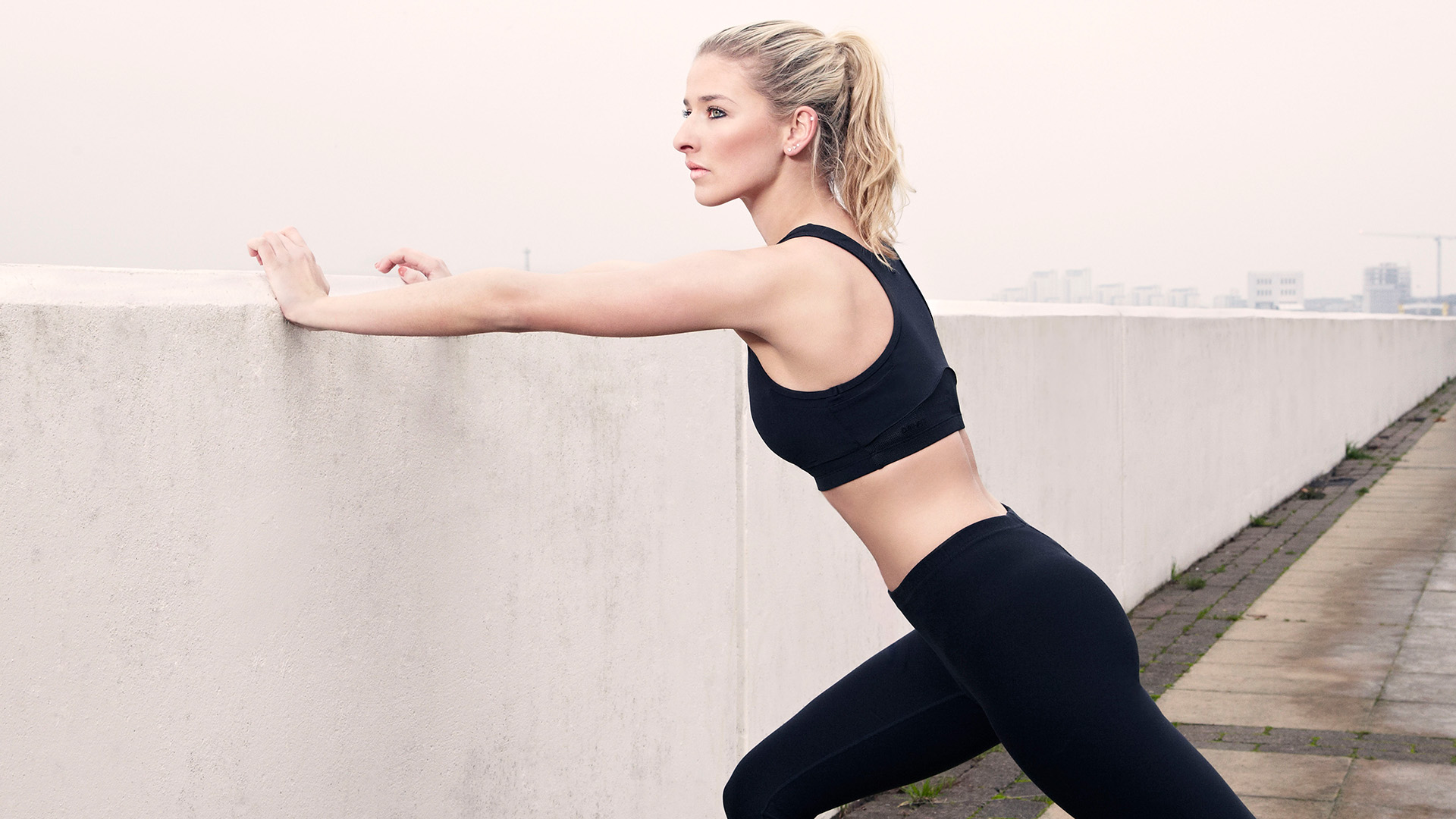
Running has consistently posed a challenge for me; I've simply never found my stride with it.
At 18, I suffered a groin injury during dance training, which further exacerbated my discomfort with running. The repetitive motion and unpredictability of weather added to my aversion, solidifying running as my least favourite form of exercise.
You might wonder why I keep returning to running despite my distaste for it. Well, there are a few factors that draw me back, no matter how challenging it may be.
Firstly, it's cost-effective. I simply lace up my trainers and step out of the door. It also offers a solid cardio workout without the constraints of class schedules. Though I'll admit that I do prefer fitness classes over running, given my relocation and the time demands of commuting, it's become a practical choice for staying active.
For many, running serves as precious 'me' time, which we all know is essential for maintaining good mental health. It's during these moments that I've reflected on ways to make running more bearable and even enjoyable for myself and look at what challenges I was really struggling with.
But before we share my tips with you, let’s look at the benefits of running. Running can significantly reduce the risk of heart attacks and strokes, lower your resting heart rate, enhance bone and muscle strength, and aid in maintaining a healthy weight. These benefits alone motivate me to keep running, even when I find it challenging.
1. Comfort is key
Dress appropriately for your run. I highly recommend a good pair of trainers; see T3's best women's running shoes guide for advice on what to purchase to get you started. Equally, your old trainers will do, and you can invest in something as you get more into running, just like me!
Remember to wear appropriate layers so you can remove the top layers as you warm up. I often use a lightweight raincoat and feel comfortable running in this. I am still fully enjoying using my Adidas Terrex Multi RAIN.RDY 2.5-Layer Rain Jacket, which is a dream to wear.
Sports bras are also a must and provide maximum comfort when bobbing up and down. There are plenty of options out there to meet your needs and budget.
2) Stretching before and after
Stretching not only helps prevent injuries but also primes your muscles before your session. Prior to my run, I dedicate 10 minutes to ensure I'm warmed up and ready to go. I start with some head turns, shoulder rolls, and cat/cow exercises to mobilize my spine.
Next, I focus on my hips and legs, paying special attention to my tight calves. My go-to stretch is the wall stretch: I place my hands on the wall and take a large step back with one foot bent and the other straight. This position should provide a deep stretch in the calf; if not, I adjust by moving my foot back until I feel the stretch.

3) Relax the body
While out running, I decided to incorporate the "check-in" method commonly practised in yoga. Taking a moment, I mentally scanned from head to toe, assessing how each part of my body felt. It became apparent that my shoulders were slightly raised, and I wasn't utilising my arms effectively; everything felt a bit stiff.
I made a conscious effort to drop my shoulders and allow my arms to gently swing. Reflecting on this adjustment, it seemed like such a simple fix, yet I realised the extent of tension I was holding in my upper body, making my running technique rigid and uncomfortable.
I also noticed an unusual habit of flexing my feet within my shoes. Recognising this, I now make a concerted effort to relax my feet and shoulders and focus on fluid arm movements while running.
The difference has been remarkable. I encourage you to conduct a similar "check-in" with your body during your runs, identifying areas of tension and consciously working to relax and breathe through them for a more enjoyable running experience.
4) Interval training
When I embarked on my running journey, I assumed my fitness level would effortlessly carry me through a 5K. However, I quickly realised that transitioning to running presented unforeseen challenges for my accustomed body. Drawing from my enthusiasm for walking, I adopted a hybrid approach—alternating between running and walking based on my energy levels.
There were moments when I felt physically drained after just five minutes, but instead of halting altogether, I seamlessly transitioned into brisk walking. Before long, I found myself effortlessly picking up the pace back into a run. This adaptive strategy not only enhanced the enjoyment of my runs but also prolonged my outings beyond what I initially anticipated.
To vary my pace and maintain interest, I utilised nearby objects such as cars, trees, and benches as markers for different speeds. Occasionally, I even incorporated brief sprints, pushing myself to the limit, which proved both gratifying and invigorating thanks to the endorphin rush.
5) Don’t finish your run at home
You might assume that running straight back home is the most sensible choice, but my favourite segment of the run is the 5 to 10 minutes afterwards that I allow myself to walk home. It's a chance to gently stretch my legs, gradually cool down, and take a moment to pat myself on the back for a job well done.
After all, running encompasses the entire experience and reaping all its rewards. It's an opportune moment to layer back up if you've shed any clothing during the run, ensuring your muscles stay warm as you head home for a final stretch.
Discovering the joy of running
With determination and an open mind, anyone can become a runner and enjoy the perks of this affordable exercise. By adapting to injuries and borrowing techniques from other preferred fitness activities, you can personalize running to fit your needs. Don't forget to dress for comfort and choose a scenic route that uplifts you, even if it means a short drive. Remember, it's not just about crossing a finish line; it's about embracing the journey and finding what brings you joy and fulfilment.







